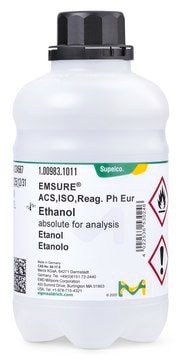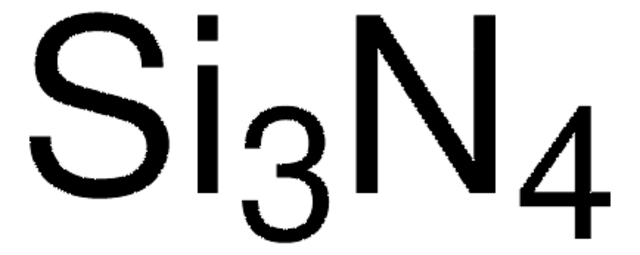PHR1046
Ethylene glycol
Pharmaceutical Secondary Standard; Certified Reference Material
Sinónimos:
Monoethylene glycol, 1,2-Ethanediol
About This Item
Productos recomendados
grado
certified reference material
pharmaceutical secondary standard
Nivel de calidad
Agency
traceable to USP 1265515
densidad de vapor
2.1 (vs air)
presión de vapor
0.08 mmHg ( 20 °C)
CofA
current certificate can be downloaded
temp. de autoignición
752 °F
lim. expl.
15.3 %
técnicas
HPLC: suitable
gas chromatography (GC): suitable
índice de refracción
n20/D 1.431 (lit.)
bp
195-198 °C
mp
−13 °C (lit.)
densidad
1.113 g/mL at 25 °C (lit.)
aplicaciones
pharmaceutical (small molecule)
Formato
neat
temp. de almacenamiento
2-30°C
cadena SMILES
OCCO
InChI
1S/C2H6O2/c3-1-2-4/h3-4H,1-2H2
Clave InChI
LYCAIKOWRPUZTN-UHFFFAOYSA-N
¿Está buscando productos similares? Visita Guía de comparación de productos
Descripción general
Aplicación
Nota de análisis
Otras notas
Nota al pie de página
Productos recomendados
Aplicación
Palabra de señalización
Warning
Frases de peligro
Consejos de prudencia
Clasificaciones de peligro
Acute Tox. 4 Oral - STOT RE 2 Oral
Órganos de actuación
Kidney
Código de clase de almacenamiento
10 - Combustible liquids
Clase de riesgo para el agua (WGK)
WGK 1
Punto de inflamabilidad (°F)
239.0 °F - open cup
Punto de inflamabilidad (°C)
115 °C - open cup
Elija entre una de las versiones más recientes:
Certificados de análisis (COA)
It looks like we've run into a problem, but you can still download Certificates of Analysis from our Documentos section.
Si necesita más asistencia, póngase en contacto con Atención al cliente
¿Ya tiene este producto?
Encuentre la documentación para los productos que ha comprado recientemente en la Biblioteca de documentos.
Los clientes también vieron
Protocolos
99%; Glycerol, ≥99.5%; Tetraethylene glycol, 99%
GC Analysis of Class 2 Residual Solvents on OVI-G43
Chromatograms
suitable for GCNuestro equipo de científicos tiene experiencia en todas las áreas de investigación: Ciencias de la vida, Ciencia de los materiales, Síntesis química, Cromatografía, Analítica y muchas otras.
Póngase en contacto con el Servicio técnico









